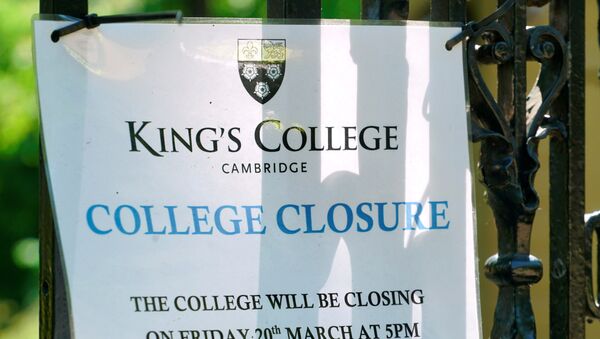The University of Stirling confirmed on Wednesday that it is committed to resuming face-to-face classes and lectures as soon as possible, as some institutions consider a shift to full-time online classes.
“Our intention is to start the semester as planned on 14 September and we will continue to work closely with government to ensure this is delivered in the safest possible manner, in line with guidance and restrictions", a University of Stirling spokesperson said. "The situation continues to alter, and whilst we are planning autumn modules to be partially or entirely online if required, we remain committed to resuming face-to-face teaching as soon as it is safe to do so".
This position was echoed by other leading Scottish universities, as the vice-chancellor of the University of Edinburgh, Peter Mathieson, told Radio 4 Today that social distancing measures and online lectures are likely to continue for "some time".
While the university plans to reopen in September, it will maintain a "hybrid model" of online lectures and face-to-face teaching for small classes for the next academic year.
Mathieson told Radio 4 that “hundreds of students packed into in lecture theatres” would probably not be “safe or possible”.
“We haven’t talked about a fully online model”, he said. “Lectures may be online and we were doing that anyway – we’re very good at that, but actually small-group teaching will continue."
The UK regulatory body for higher education, the Office for Students (OfS), called on the country's educational bodies not to make promises to students that the autumn term would see a return to normality.
While speaking at an online meeting of the Education Select Committee on Monday, OfS Chief Executive Nicola Dandridge said that students should be informed of what the nature of their university experience will be in advance of any offers accepted.
Following Their Example
This comes as the University of Cambridge announced on Tuesday that it would not conduct any face-to-face lectures over the duration of the next academic year in order to maintain social distancing measures.
"Given that it is likely that social distancing will continue to be required, the university has decided there will be no face-to-face lectures during the next academic year", the university said in a statement. "Lectures will continue to be made available online and it may be possible to host smaller teaching groups in person, as long as this conforms to social distancing requirements".
Cambridge did say, however, that the policy would be up for review if social distancing measures were to change. All classes and lectures were made virtual in March and exams are also being carried out online.
Because of the global pandemic Cambridge University is now canceling face-to-face lectures for for next academic year 2020-2021. pic.twitter.com/mCwnFCk0EZ
— Stuart S. Malawer (@smalawer) May 20, 2020
Shifting to online learning until the summer of 2021 could be financially problematic for both the university and the city after which it is named.
According to its website, Cambridge claims to add over £50 billion to the UK economy while and employing some 150,000. The report highlights a 'Cambridge Cluster' of 51 companies "spun-out directly" and a further 250 who can trace their origins to the school.
The university maintains a full-time student population of 17,000. If students work from home the impact could materialise as a significant reduction in local economic activity.
As one of the world's leading academic institutions, Cambridge's reputation as a prestigious university from which graduates work tirelessly for an acceptance letter may come under threat as classes drift away from its world-famous halls.
As lectures increasingly move online with no fee reductions and payments of around £9,250-a-year, A-level students say they are looking to defer or skip university entirely, the study revealed.
Universities across the UK could experience a -£760 million cash hit as a new survey from University and College Union (UCU) suggests that nearly a fifth of A-level students may postpone their higher education for a year due to the coronavirus pandemic, according to The Guardian. This would see 120,000 fewer students starting at the national autumn intake.



